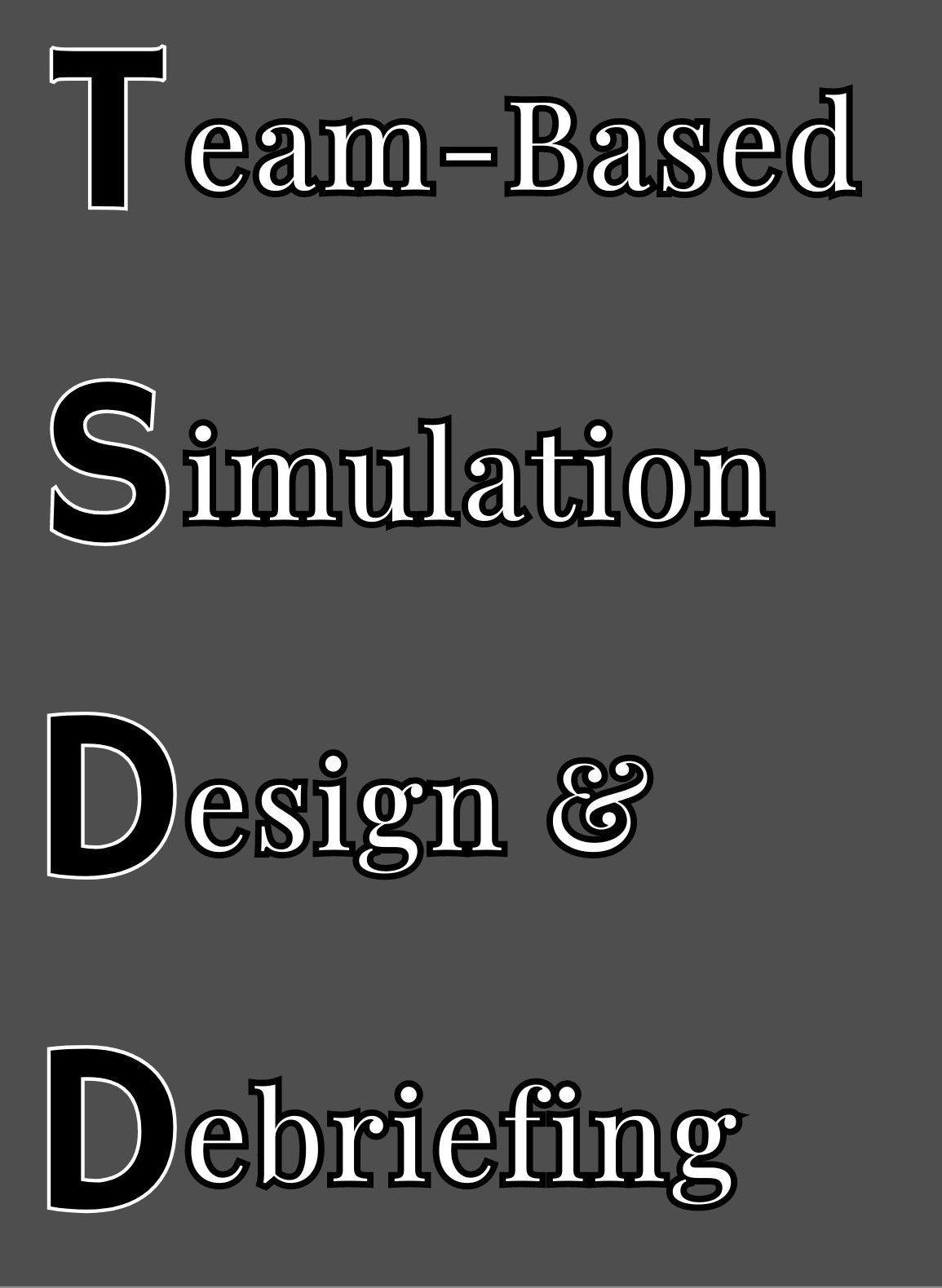About TSDD
Team-Based Simulation Design and Debriefing (TSDD) is a three-day immersive course* presented by University of Iowa Health Care Center for Procedural Skills and Simulation, in collaboration with the Office of Consultation and Research in Medical Education and the Departments of Anesthesia, Emergency Medicine, Pediatrics, and Nursing.
Participants in this course join a growing community of practice in health care that applies debriefing and/or simulation effectively to promote learning, teamwork, and patient safety.

CANCELLATION POLICY:
At Iowa Health Care, we understand life is unpredictable. Submission of this application indicates you have confirmed the time off/made arrangements with your team to be able to attend all 3 days.
In order to best accommodate the growing interest in TSDD, no refunds will be allowed for cancellations that occur after Friday, September 19, 2025. Participants may transfer to a future course but will still be billed for the full cost of the course.
Thank you for your understanding.

PLEASE NOTE:
The deadline for applications is by 5PM on Friday, August 29, 2025 or when course is full.
Participants will be notified of their acceptance the week of September 8, 2025.
Gain an introduction to simulation design, types of sim-based educational experiences, and facilitating a debrief that supports a culture of inquiry, genuine curiosity, honest feedback, and resilience-focused safety practices.
Learning Objectives:
- Design, conduct, and debrief an Interprofessional simulation
- Contrast effective use and measurement of simulation versus didactic methods
- Analyze health care teamwork skills in critical situations
- Utilize communication styles of members of ad-hoc teams
- Deliver effective educational feedback in a manner that promotes reflection
- Describe how a "culture of inquiry" promotes resilience in teams and organizations.

A new experience in learning, a new conversation about improvement.
Course Topics & Activities:
(depending on instructor availability)
- Learn DISC communication styles
- Participate in simulations and teamwork activities
- Work with experts to design simulations
- Engage in discussions about how people think and learn
- Network with others who are interested in simulation-based learning
- Practice debriefing, difficult conversations, and advocacy/inquiry activities
The Experience
‘Simulation’ can refer to several different types of activities. To provide an example of simulations TSDD will focus on, please watch this 5-minute video of actors demonstrating two simulations of a ‘code blue’ event in an airport. https://youtu.be/ISpPf1FXfiE
In TSDD, we design, participate in, and debrief such scenarios to learn how a team moves from the first run to the second and beyond. The course involves up to four hours of work beforehand for vital time to sleep on these concepts and a mixture of didactic and experiential learning.
As instructors and ‘simulation enthusiasts’ our hope is to apply these statements together with TSDD participants:
- Teamwork is not just team spirit, it is a skill that requires practice.
- Simulation is not a better PowerPoint: experiential learning promotes different abilities than didactic learning.
- Debriefing is not a harmonious chat, it is a fearless joint reflection on perspectives.
- Safety is not simply error-free execution, it is also training and resources to adapt to the unexpected.
- Leadership is not brilliant control, it is humble building and using strengths.

Intended Audience
This course is intended for health care faculty and staff interested in development of debriefing and/or simulation skills.
Students are also welcome if their advisor or program director agrees this is applicable to their program or will be used during their time at UI.
Special Note
This course is designed to be an immersive experience. We respectfully ask that you arrange to be off service and free of call responsibilities throughout the course. You must attend all three sessions of the course.
To build cohesiveness we also provide breakfast, lunch, and snacks for all 3 days. Also please note, there will be 4 hours of required work to be completed prior to the start of the course.
Registration
Space is limited so we use an online application. The cost for TSDD is $300. Instruction on paying the fee by MFK or credit card will be sent out via email when your application is accepted. Payment must be received within 8 weeks of your acceptance or 20 calendar days before the course starts (whichever is first) to secure your spot.
Contact Julie Hartman at 1-319-353-8701 with any questions regarding the registration.
Faculty
Organized by the Center for Procedural Skills and Simulation + the Department of Anesthesia Simulation and Education Center at Iowa Health Care
Heather Bair, DNP, CRNA, CHSE, FAANA Associate Clinical Professor, Associate Director UI Anesthesia Nursing Program
Dennis Befeler, MFA, CHSOS, CPSS Simulation Technology Manager
Mary Denmead, BA, CHSE, CPSS Simulation Specialist + Simulated Patient Educator
Julie Hartman, DC, MS, CHSE, CCRP, CPSS Operations Director
Janet Hosking, MSN, RN-BC, CHSE, Nursing Practice Leader, Nurse Residency Program Coordinator
Amanda Kane, BA, CPSS Administrative Coordinator
John C. Keech, MD, FACS, Clinical Associate Professor of CT Surgery, Thoracic Surgery Integrated Residency and Fellowship Program Coordinator, Director of CPSS
Paul Leonard, MD, PhD, Clinical Associate Professor, Department of Anesthesia
Julie Lindower, MD, MPH, Clinical Associate Professor, Stead Family Department of Pediatrics
Alisha Loy, BS, CRCST, Quality and Operations Improvement Engineer
Daniel Miller, MD, Clinical Professor Emergency Medicine, Director of Medical Simulation
Jane Miller, PhD, Associate Professor, Family Medicine, Director of OCRME
Brooks Obr, MD, MME, Clinical Assistant Professor of Emergency Medicine
Tom Persoon, MS, Adjunct Assistant Professor, UI Colleges of Public Health and Engineering
Jeff Pettit, PhD, MA, Associate Professor, Associate Director of OCRME
Kokila Thenuwara, MD, MME, Clinical Associate Professor, Department of Anesthesia
Jeff Vande Berg, MS, Quality and Improvement Engineer
Joseph Vitelli, PMP, BS, CPSS Perioperative Simulation Specialist
Stephanie White, BS, Manager Anesthesia Simulation and Education Center
